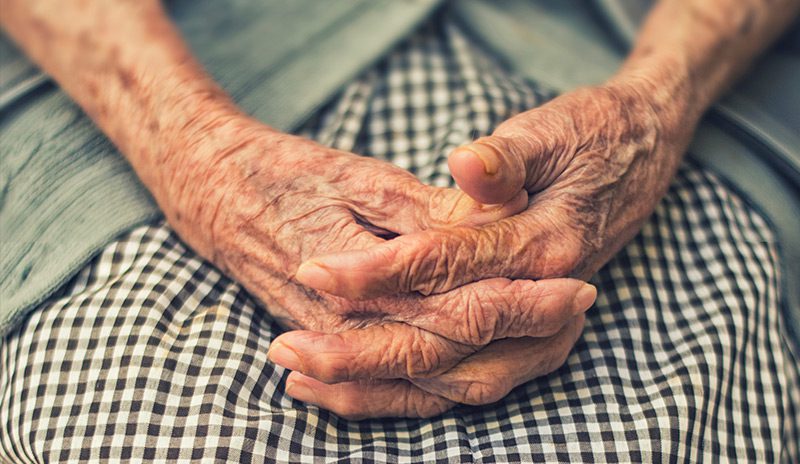We are here to help. If you or someone you know needs assistance, please reach out to us.
Abuse can happen to anyone—no matter the person’s age, sex, race, religion, or ethnic or cultural background. Each year, hundreds of thousands of adults over the age of 60 are abused, neglected, or financially exploited. This is called elder abuse.
Abuse can happen in many places, including the older person’s home, a family member’s house, an assisted living facility, or a nursing home.
Most States require that doctors, lawyers, and other mandated reporters to report elder mistreatment. Family and friends can also report it. Do not wait. Help is available through the Abused Adult Resource Center.
Learn more about how to report to abuse and neglect of vulnerable adults to Vulnerable Adult Protective Services here:
https://www.nd.gov/dhs/services/adultsaging/reporting.html
Crisis intervention is a necessary step to breaking the cycle of violence and victimization. Our advocates provide emotional support and services to survivors of elder abuse.
Our free and confidential services include:
24-hour crisis intervention and advocacy
Emergency shelter
Support groups
Referrals to counseling
Information and referrals for
- food
- clothing
- furniture
- medical care
- educational training
- financial assistance
- social services
Community education/presentations
Types of Elder Abuse
- Physical abuse happens when someone causes bodily harm by hitting, pushing, or slapping.
- Emotional abuse, sometimes called psychological abuse, can include a caregiver saying hurtful words, yelling, threatening, or repeatedly ignoring the older person. Keeping that person from seeing close friends and relatives is another form of emotional abuse.
- Neglect occurs when the caregiver does not try to respond to the older person’s needs.
- Abandonment is leaving a senior alone without planning for his or her care.
- Sexual abuse involves a caregiver forcing an older adult to watch or be part of sexual acts.
- Financial abuse happens when money or belongings are stolen. It can include forging checks, taking someone else’s retirement and Social Security benefits, or using another person’s credit cards and bank accounts. It also includes changing names on a will, bank account, life insurance policy, or title to a house without permission from the older person. Financial abuse is becoming a widespread and hard-to-detect issue. Even someone you’ve never met can steal your financial information using the telephone or email. Be careful about sharing any financial information over the phone or online—you don’t know who will use it.
- Healthcare fraud can be committed by doctors, hospital staff, and other healthcare workers. It includes overcharging, billing twice for the same service, falsifying Medicaid or Medicare claims, or charging for care that wasn’t provided. Older adults and caregivers should keep an eye out for this type of fraud
Support Group (Ages 50+)
| Day | Time |
|---|---|
| Tuesdays | 6pm |
Criminal Justice Assistance
Our certified domestic violence advocates assist survivors experiencing adult abuse(as defined under NDCC 14-07.1-01), with
- the Protection Order application
- courtroom advocacy
- providing emotional support during the protection order hearing
- follow-up and referral
- assistance with crime victims compensation
- and community education presentations.
What is a Domestic Violence Protection Order?
Protection Orders (or “POs”) are documents filed with the court system that, if granted, state that your abuser cannot contact you or be near you. Your children can also be protected under this order. Protection orders do NOT mean that your abuser will be charged with Domestic Violence, or that he/she will be immediately placed under arrest. He/she will not be arrested unless the Protection Order is violated after it has been served.
Who Can Request a Domestic Violence Protection Order?
According to the North Dakota Supreme Court website, “A spouse or former spouse, a family member, a parent, a child, a person related by blood or marriage, a person presently residing with the abusing person or who has resided with that person in the past, a person who has a child in common with the abusing person, persons who are in a dating relationship, or any other person with sufficient relationship to the abusing person as determined by the Court.”
Domestic Violence Protection Order Process
The victim (known as the “Petitioner”) completes the petition for the Protection Order and files it with the court. An advocate at the Abused Adult Resource Center (AARC) can help you with this. If the court finds that you are in immediate danger based on the information that was filed, they can issue a Temporary Protection Order.
A court hearing will be scheduled no later than 14 days after the temporary order is issued. This hearing is held to determine whether or not the court will extend the Protection Order. This gives both the Petitioner and the Respondent a chance to say why the Protection Order should or should not be extended. You can request that a AARC advocate be present with you at this hearing for support. However, please keep in mind that we are not lawyers. If you wish to have a lawyer present, you must arrange this prior to the hearing.
Signs of Abuse
You may see signs of abuse or neglect when you visit an older person at home or in an eldercare facility. You may notice the person:
- Has trouble sleeping
- Seems depressed or confused
- Loses weight for no reason
- Displays signs of trauma, like rocking back and forth
- Acts agitated or violent
- Becomes withdrawn
- Stops taking part in activities he or she enjoys
- Has unexplained bruises, burns, or scars
- Looks messy, with unwashed hair or dirty clothes
- Develops bed sores or other preventable conditions
- Over or under medicated
If you see signs of abuse, try talking with the older person to find out what’s going on. For instance, the abuse may be from another resident and not from someone who works at the nursing home or assisted living facility. Most importantly, get help.
If you have concerns for yourself or someone you know, please contact the Abused Adult Resource Center for help.
Information from www.nia.nih.gov


